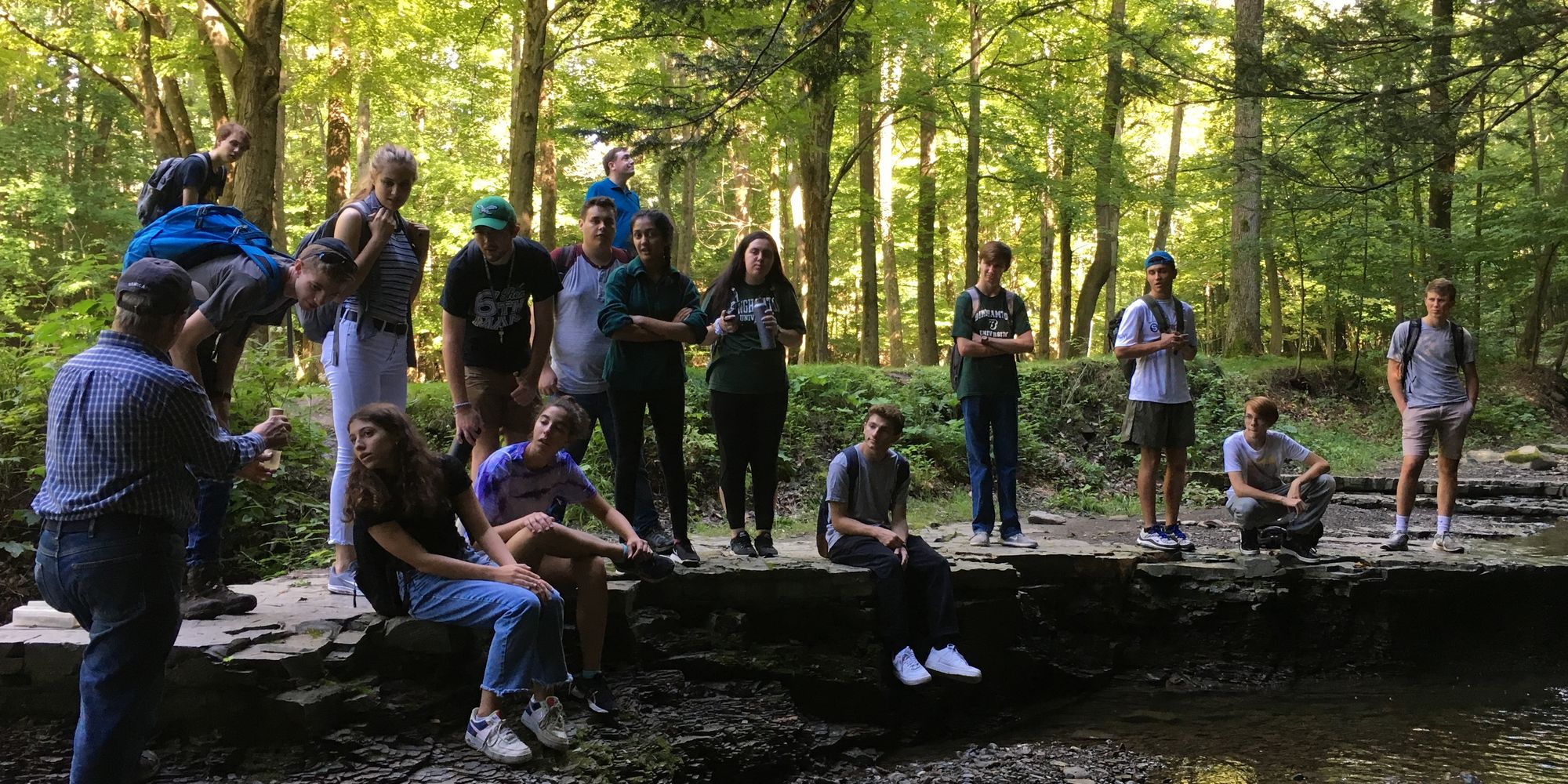People, Politics, and the Environment
Binghamton University, 2019-2021
People live in places and imprint meaning and function on the natural environment. This can be a local, or even individual process, but is also inescapably tied to broader political, economic, and cultural dynamics. The U.S. population is characterized by high mobility, and international migration is a growing phenomenon, with people frequently leaving their places of birth for new ones. As people move from place to place for any of life’s reasons--whether to go to school, flee natural or political disasters, or to seek new economic opportunity--they are faced with learning about and integrating themselves into new places. How do we learn about a new place? How does our understanding of the places in which we live shape our ability to sustain ourselves and our environment? We will develop our own approach to studying the place you find yourself as a college student--Binghamton--how it came to be settled at the confluence of two rivers, its transition to a set of utopian, industrial communities with factory work that attracted European immigrants, to then become the birthplace of modern computing and aviation. We will consider this trajectory in the current post-industrial phase where flooding linked to global climate change, revitalized downtown areas, and out-migration are major concerns. While we will focus on Binghamton, this course will give you the tools to study any place. You will practice a variety of research methods used broadly within the field of environmental studies to demonstrate the need to integrate perspectives and approaches when studying the relationship between people, places, and the natural environment. This course will satisfy the social science (N) or communication (O) general education requirement, and the “W” (writing) requirement for Harpur College. It also satisfies the requirement for ENVI 101 towards an environmental studies major.
ENVI 105: People, Politics, and the Environment course syllabus (pdf)


